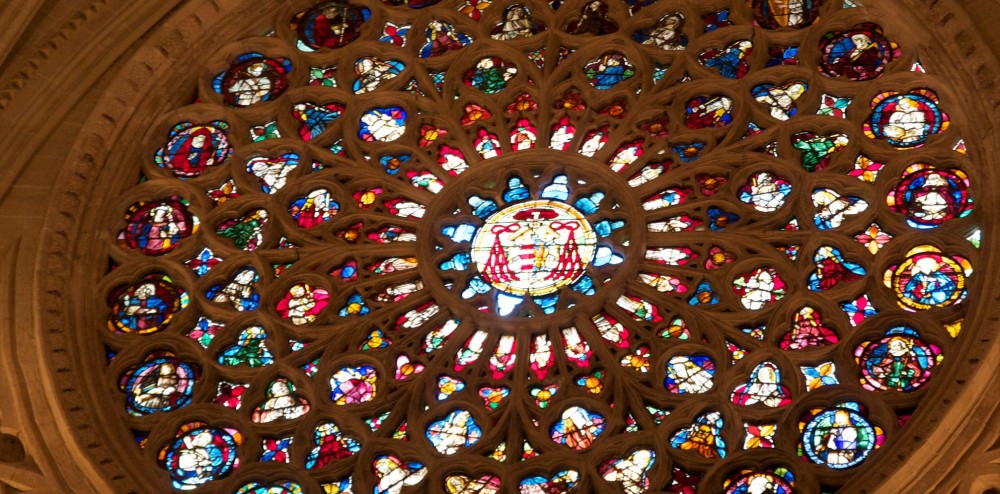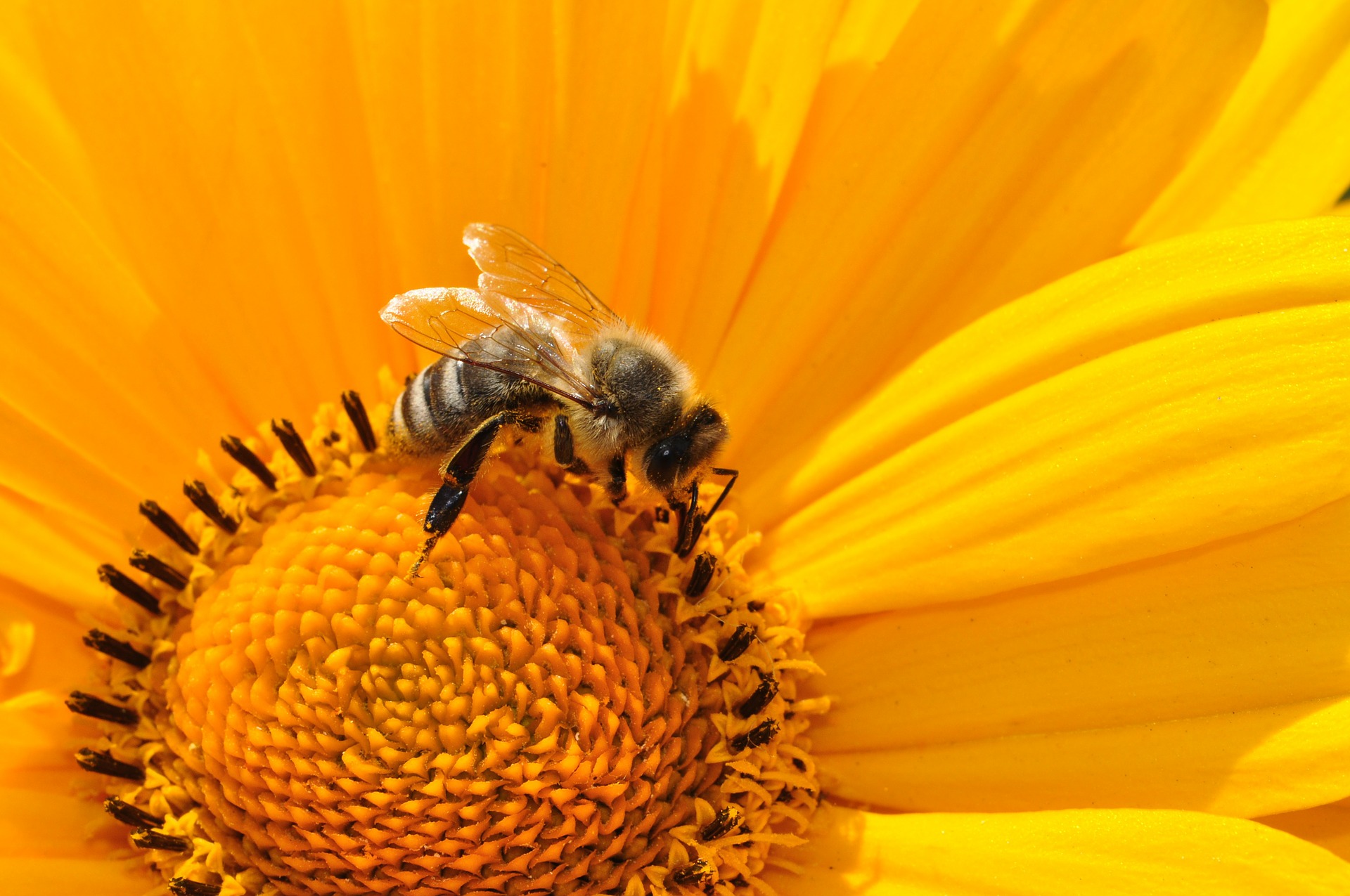Over the centuries many people have developed a deeper appreciation regarding the connections of the creatures, large and small, which contribute to our lives. In recent decades the collapse of beehives in many regions of North America has caused great concern. Scientists note that one-third of our daily diet comes from plants pollinated by bees and other insects. The New York Times published a study in the Science Section about the focus on other pollinators whose services may assist to avoid a crisis: see “Plan Bee: The Rise of Alternative Pollinators” by Catherine M. Allchin. May the sources of the attack on bees be discovered so that perhaps the balance of agricultural and horticultural areas will recover soon!
The presence of bees in the Bible is noted in a number of places. In England a can of honey has the quotation, “Out of the strong shall come the sweet,” referring to the riddle of Samson (Judges 14:4-8).
The Hebrew word translated as “honey” can also mean “date syrup,” as in Psalm 81:17: “Israel I will feed with the finest wheat and satisfy them with honey from the rock.” This refers to the rocky ground unsuitable for vines on which date palms were planted. We recall the promise that the Israelites will come into a “land flowing with milk and honey” (Exodus 3:8; Leviticus 20:24; Numbers 13:27), undoubtedly with reference to date syrup.
God’s Law and the gift of wisdom are “more desirable than gold, sweeter than honey from the comb” (Psalm 19:11; see Psalm 119:103), referring to the work of bees. The prophet Ezekiel was given the Word of God as a scroll, sweet as honey to the taste of Ezekiel but a bitter message to the disobedient (Ezekiel 3:1-3; See Apocalypse 10:9).
“In Christian art, the beehive suggested community, sweetness, eloquence, and sometimes the Virgin Mary and Christ. The bee also exemplified industry, diligence, and vigilance” (Judith Couchman, The Art of Faith: A Guide to Understanding Christian Images (Brewick, M.A.: Paraclete Press, 2012) p. 158). The mellifluous tongue of Saints Ambrose, John Chrysostom and Bernard of Clairvaux carried the wisdom of God to their generation.
A prayer extends this image to ourselves.
Dear Lord, may I think often of the bees and the honey they produce. And when I do, help me to remember that I too can produce sweetness by what I say. Teach me to use kindness in all my thoughts and actions. And please, Lord, help me to do it sincerely. Good honey must be pure, and so it is with kind words – they must be honest and true.
(Norma J. Perssen, God and Nature: A Book of Devotion for Christians who Love Wildlife (Englewood Cliffs: Prentice Hall, 1984) p. 57.)
From ages past people marveled at the complexity of the beehive and the wonderful cooperation of many to maintain their home and provide sustenance for all. Until the 17th century people thought that the leader of each hive was its king. In Shakespeare’s King Henry V, during the discussion of the king’s choices in governance, the Archbishop of Canterbury presents an analogy with a long reflection on the marvelous cooperation of bees.
Therefore doth heaven divide
The state of man in divers functions,
Setting endeavour in continual motion;
To which is fixed, as an aim or butt,
Obedience: for so work the honey-bees,
Creatures that by a rule in nature teach
The act of order to a peopled kingdom.
They have a king and officers of sorts;
Where some, like magistrates, correct at home,
Others, like merchants, venture trade abroad,
Others, like soldiers, armed in their stings,
Make boot upon the summer’s velvet buds,
Which pillage they with merry march bring home
To the tent-royal of their emperor;
Who, busied in his majesty, surveys
The singing masons building roofs of gold,
The civil citizens kneading up the honey,
The poor mechanic porters crowding in
Their heavy burdens at his narrow gate,
The sad-eyed justice, with his surly hum,
Delivering o’er to executors pale
The lazy yawning drone.
(Henry V. Act I scene 2, line 183-204)
The Easter Vigil Liturgy in the Roman rite begins with the lighting of the Paschal candle from the new fire. The beautiful Paschal Proclamation or Exultet can be traced to the early Middle Ages. It includes a celebration of the work of bees.
On this, your night of grace, O holy Father,
accept this candle, a solemn offering,
the work of bees and of your servants’ hands,
an evening sacrifice of praise,
this gift from your most holy Church.
But now we know the praises of this pillar,
which glowing fire ignites for God’s honor,
a fire into many flames divided,
yet never dimmed by sharing of its light,
for it is fed by melting wax,
drawn out by mother bees
to build a torch so precious.
O truly blessed night,
when things of heaven are wed to those of earth,
and divine to the human.
May the scientists of our time learn what has interfered with the life of so many bees and provide a remedy to the dilemma! Of course, every aspect of such research must be evaluated carefully from the perspectives of many experts from several nations. See Emily Baumgaertner’s pertinent article in The New York Times, “Viruses Spread by Insects to Crops Sound Scary. The Military Calls It Food Security.” We also might express gratitude for the little creatures who render great service as pollinators and then are robbed of their harvest so that we can indulge in a craving for sweetness.

